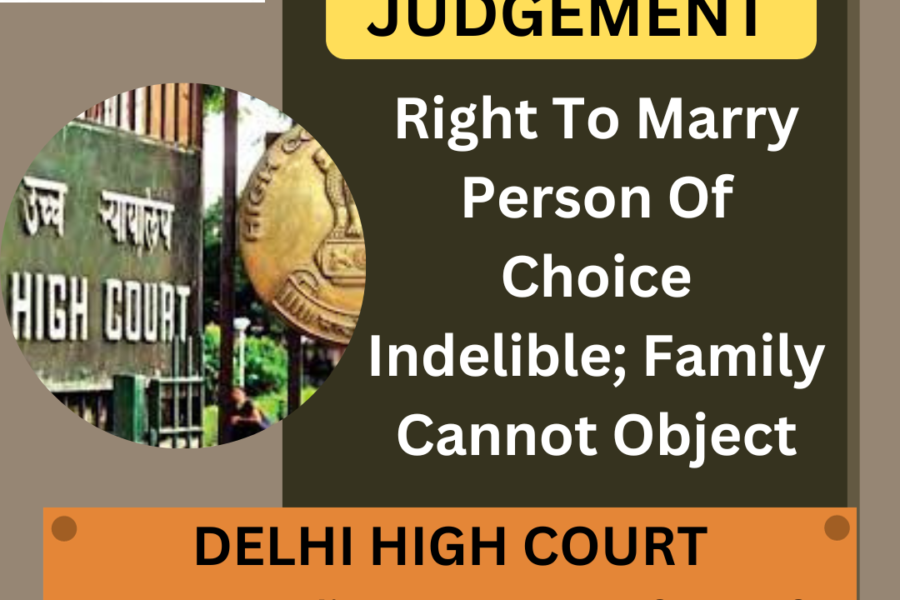Case Title: Smt. Deepali & Anr. v. State of NCT of Delhi & Anr. W.P. (CRL) 3016/2023, CRL.M.A. 28098/2023
While granting police protection to a couple facing threats from their family post-marriage, the Delhi High Court recently said that the right to marry a person of one’s own choice is indelible and constitutionally protected, and not even family members can object to such matrimonial ties.
In a recent order, the bench of Justice Tushar Rao Gedela emphasized that the state is under a constitutional obligation to provide protection to its citizens, and the high court, being a constitutional court, is expected to further the constitutional rights of the couple.
“The right of the petitioners to marry a person of their own choice is indelible and protected under the Constitution, which cannot be diluted in any manner whatsoever,” the court said.
The current petition was submitted under Article 226 of the Indian Constitution in conjunction with Section 482 of the Code of Criminal Procedure, 1973. It sought a writ of mandamus, compelling the state to ensure the safety and protection of the petitioners, who entered into a marriage despite their parents’ objections.
Based on the details provided, on August 2, 2023, the Court nullified a First Information Report (FIR) that had been registered under Sections 354, 506, and 509 of the Indian Penal Code, 1860. This FIR had been filed by petitioner No. 1 (the wife) against petitioner No.2 (the husband). The court’s decision was made in light of the wife’s statement, where she revealed that she had been coerced by her own family members to file the FIR on unfounded and baseless grounds.
“There is no doubt about the factum of marriage between the petitioners and the fact that they are major. No one, not even the family members, can object to such a relationship or to the matrimonial ties between the petitioners,” the court said.
The petitioners submitted that they got married in April against the wishes of their parents and had been living together happily since then amid threats from family members, particularly the mother of the woman.
Based on this perspective, the Court has issued a directive instructing the State to offer protection to both of the petitioners and to guarantee their safety, specifically in relation to any potential harm from petitioner No. 1’sparents or family members. The Beat Officer is instructed to meet with the petitioners daily, both in the morning before 9:00 AM and in the evening after 6:00 PM, for the next two months to ensure their well-being and safety.
“In case the petitioners have shifted to a place other than the one shown in the memo of parties, the I.O. shall intimate the said SHO of the concerned police station having territorial jurisdiction over the residential address of the petitioners, who shall comply with the present order in letter and spirit,” the court ordered.
“The petitioners shall disclose their present residential address as well as their working address to the I.O., who shall not disclose the same to any unauthorized person,” it said.

